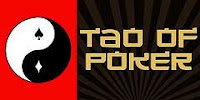A Metaphysical Check Up
 Just now happened to recall that I scheduled a physical for this afternoon. Have a little reminder card by the monitor here that was supposed to guarantee I wouldn’t forget, but it very nearly slipped my mind. I set up the visit a week ago, and when I told Vera she complimented me for having done so.
Just now happened to recall that I scheduled a physical for this afternoon. Have a little reminder card by the monitor here that was supposed to guarantee I wouldn’t forget, but it very nearly slipped my mind. I set up the visit a week ago, and when I told Vera she complimented me for having done so. “You’re growing up,” she cheekily added.
I guess it wouldn’t have seemed so mature to have forgotten the appointment, so I’m glad I’m remembering it now. Could well be I blocked it out somehow, subconsciously not wanting to endure the close inspection of my current status.
In a recent post titled “Mental Mazes,” the one physician whom we actually look forward to visiting -- Dr. Pauly -- offers some thoughtful ideas with regard to this business of self-assessment. The post starts with a discussion of Tiger Woods, moves on to a short catalogue of character types most of us tend to exhibit (at the poker table and elsewhere), and ends with a breakdown of breakdowns in which the Doc classifies a few different kinds of tilt.
All good stuff, though I especially like the middle section in which he talks about the “five or six versions of ourselves” we present to others as we make our way through our jobs, our relationships, our poker games, and elsewhere. Pauly explores in particular how we present ourselves as various types at the tables, including the “nebbish goober,” the “reckless gambler,” the “confident warrior,” or the “fraidy cat.”
 As Pauly’s descriptions of the types suggest, when it comes to presenting one of these “versions of ourselves” at the poker table, our selection usually isn’t wholly self-guided. Usually we’re reacting to how the game is going, and a rush of cards or a sour sequence often dictates which type we become. In fact, I’d go so far as to suggest that it sometimes takes just a single hand to produce such a change in character.
As Pauly’s descriptions of the types suggest, when it comes to presenting one of these “versions of ourselves” at the poker table, our selection usually isn’t wholly self-guided. Usually we’re reacting to how the game is going, and a rush of cards or a sour sequence often dictates which type we become. In fact, I’d go so far as to suggest that it sometimes takes just a single hand to produce such a change in character. For example, yesterday I was cruising along in what had been a nice, comfortable session of six-handed limit hold’em in which I was mostly “confident warrior,” taking the initiative, forcing folds, and making hands frequently enough to reinforce my feeling of having an edge.
Then came a funny hand in which a player who had distinguished himself to me as a “reckless gambler” raised from UTG. I three-bet with

 from the cutoff, and it folded back around to my opponent who capped it. I called, of course, and together we saw a flop of
from the cutoff, and it folded back around to my opponent who capped it. I called, of course, and together we saw a flop of 

 .
. He bet, I raised, and he reraised. Unsure about my top pair but having seen him get out of line before, I capped it and he called. The
 on the turn brought another bet from him, and feeling less well about the whole situation I just called. The river was the
on the turn brought another bet from him, and feeling less well about the whole situation I just called. The river was the  . Once I again I called his bet, and he showed
. Once I again I called his bet, and he showed 
 for a rivered two pair and took the pot.
for a rivered two pair and took the pot.Somewhere in the middle of that hand I had clearly changed from “confident warrior” to “nebbish goober,” a transformation that became more evident over the next few orbits as suddenly I became more passive and self-doubting. Might have even let myself be temporarily affected by that “why-me-how-unfair-I’m-a-victim” applesauce that we all sometimes feel after an unfortunate river card takes a hand from us.
As Dr. P. also suggests, this stuff happens away from the poker tables, too. And there, also, we often let outside forces -- i.e., that which we cannot control -- dictate which of the “versions of ourselves” we become.
Hopefully we figure out how to manage those changes and get along well enough, a process that involves being willing to look at ourselves more closely, to see and accept the flaws, and to do what is necessary to be the best self we can be. Or at least a version with which we can be comfortable.
And then, if you’re lucky enough, someone may point out to you that you’re growing up.
Labels: *shots in the dark, Dr. Pauly, limit hold'em














0 Comments:
Post a Comment
<< Home